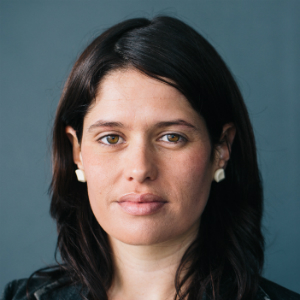Everyday wrongs where global injustices start
A human rights lawyer has encouraged up-and-comers to look for volunteer opportunities in their own backyard, where some of the most important social justice causes lie, rather than coveting exclusive internships in The Hague.

Katie Roberston (pictured) has made a career out of redressing wrongs. She has been involved in a wide range of powerful and emotional situations, from acting on behalf of workers diagnosed with mesothelioma to families whose children were born in Australian detention centres.
To continue reading the rest of this article, please log in.
Create free account to get unlimited news articles and more!
The interests of vulnerable people are at the core of every project that Ms Robertson is involved in, and she confesses that if it was not for this human interest, she may never have become a practising lawyer.
Originally intending to work in social policy, a volunteering stint in a community legal centre during university flipped a switch in Ms Robertson. She realised that lawyers could and were actively changing people’s lives for the better every day. That understanding was later crystallised during her first year as a graduate lawyer with Maurice Blackburn.
“It was really in my first placement in the suburbs of Melbourne, assisting victims of workplace injuries, when the penny really dropped for me,” Ms Robertson said.
“That was real human rights work; it was real social justice work. I think on paper it may not seem glamorous, but working to defend the rights of ordinary people who have been put in dangerous and compromising positions and helping them fight for a fair outcome is really what it’s all about,” she said.
The Melbourne lawyer is currently on a leave of absence from the social justice practice of Maurice Blackburn, to work as a senior adviser for a federal parliamentarian. This latest break is one of a number she has taken from her post at the firm, where she started her career as a PLT student in 2009.
Ms Robertson was reflective in her advice for altruistic would-be human rights lawyers. Based on her own experience, she said it is important to think about where injustice begins, which is often right next door.
“I don’t think social justice is about going to do an internship with the UN or going to work at The Hague necessarily. It’s about giving ordinary, everyday people access to basic entitlements. That’s what social justice is to me, at least at a foundational level,” Ms Robertson said.
“Get out and find work where people live, near the factories where people are working. And look for opportunities to help others access really basic and essential entitlements on a day-to-day basis. That’s what I tell people,” she said.
Ms Robertson has carved out a diverse career, working for the Central Australian Aboriginal Legal Aid Service in outback Australia and then in 2012 moving to Cambodia to work as an international lawyer assisting in the Khmer Rouge trials.
“They were two of the big things that I had always dreamed of doing in my career,” Ms Robertson said.
“One was go to the Northern Territory and work for Aboriginal Legal Aid and the other thing, having travelled to Cambodia about 10 years earlier, was to come back and get some international legal experience working on behalf of victims of genocide,” she said.
After her advocacy and casework contract for Indigenous communities ended, Ms Robertson scored a position supporting the work of the civil parties in the Extraordinary Chambers of the Courts of Cambodia. During her 13 months in Phnom Penh she helped two main groups of civil party victims participate in proceedings.
Now back in Australia, she is planning to soon return to Maurice Blackburn’s social justice practice, ahead of its major class actions hearing on behalf of asylum seekers.
Ms Robertson urged young practitioners looking for more experience in the human rights space to “go out to where the work is needed”, citing a huge need for assistance among the refugee community. It is also important to be brave and reach out to other more established practitioners working in the space for tips and guidance, she said.
“Don’t be shy – get in touch with people and talk to as many people who are working in the field as you can.
“[Hitting] them up for coffee and [asking] them about their career is the way to go and it is the best way to learn about how to get into the field you want to be in. The other thing I’d say is get amongst it,” she said.







